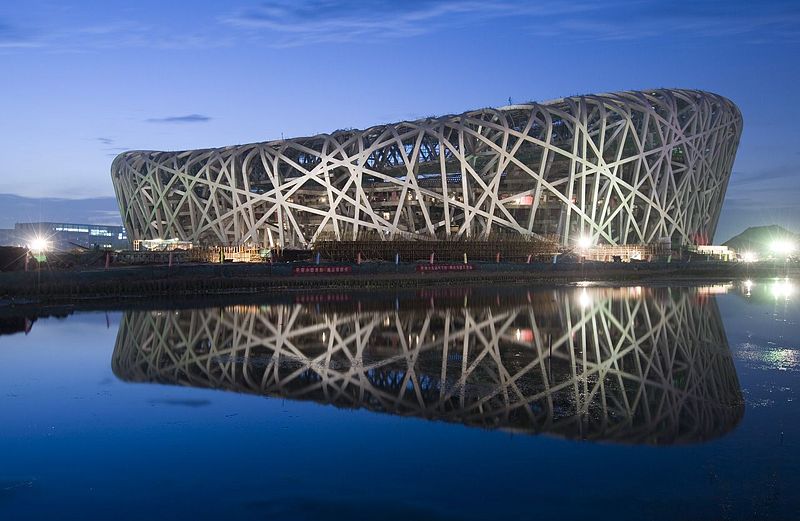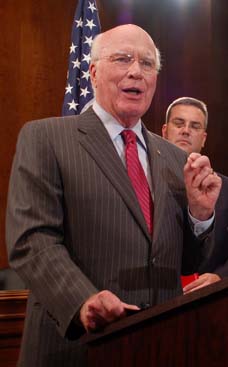
What is the legacy of the Beijing Olympics? Western perceptions of China tend to plant their standards at the poles of enchantment and apprehension: Witness the reaction to the opening ceremonies, during which many viewers' impressions slid along a continuum of awe at the sight of thousands of drummers and flying sylphs to the uneasy realization that a production of that scale is only possible in a nation with an enormous population and resources, and a government powerful enough to mobilize them. If they can do this, what can't they do? The performances of Chinese athletes during the Games confirmed the country's formidability. Shortly after Beijing was awarded the Olympics, in 2001, China devised Project 119-an initiative named for the number of gold medals awarded (only one to a Chinese athlete) at the 2000 Games in track and field, swimming, rowing, sailing, and canoeing and kayaking. The plan was to boost the country to the top of the medal standings. China finished with its highest total ever, 100 medals, 51 of them gold (sidebar, page 70). Only the U.S. won more, 110 total, though just 36 were gold. Yet despite the Beijing Olympics' spectacle and success-officials claimed the Games made a $146 million profit-the capital is feeling the hangover that comes after hosting the world's biggest-ever coming-out party. Beijing is learning, as host cities have in the past, that the Games' influence is often extinguished with the torch. (The hangover was not soothed, of course, by the simultaneous near collapse of the world's economy.) A year after the Olympics, Beijing residents still cannot drink the tap water, or surf an unfiltered Internet, or exercise in safe air.
Michael Meyer writes: By many measures the 2008 Olympics were a smashing success, but for the people of Beijing, the Games have left a mixed legacy
One World, One Dream One Year Later
By many measures the 2008 Olympics were a smashing success, but for the people of Beijing, the Games have left a mixed legacy
MICHAEL MEYER
Olympic gold medals, cheap!" calls a woman outside Beijing's National Stadium. "Gold medals, buy one now!" The freelance vendor does not stock phony silvers or bronzes. "After all," she says, "people only want a champion's memory." ¶ Which is one reason some 20,000 visitors-mostly Chinese from outside the capital-arrive daily at the Bird's Nest, the $450 million icon of the 2008 Summer Games that has joined the Great Wall and the Forbidden City as national symbols. Like those imperial structures, the Bird's Nest is without a practical purpose today, hosting not a home team but a handful of pop concerts and the many tourists who pay 50 yuan ($7.33) to picnic in the stands and pose for photographs on a mock medal stand. ¶ The state-owned investment company that manages the Bird's Nest has added an amusement park to a corner of the sprawling Olympic Green complex that surrounds the stadium, but on a searing June afternoon few visitors venture from the shade of the structure's distinctive steel ribbons, now flecked with scabs of rust and coated in dust. Tourists this day enter the stadium to watch barren flagpoles, the unlit cauldron and an empty field. The scoreboard flashes clips of Jamaican sprinter Usain Bolt lunging across the finish line, and fireworks blooming along the capital's imperial axis, and the pigtailed nine-year-old singing Ode to the Motherland during the opening ceremonies.
[Excerpt]
Only one of these images was real-the pyrotechnics were partially rendered digitally and the girl lip-synched the song-but authenticity can be illusory in Beijing: Just look at the scores of knockoffs for sale around town to complement those fake gold medals. Even the author of its Olympic bid slogan, New Beijing, Great Olympics, laments that it was invoked to destroy the city's traditional fabric. "By 'New Beijing,' I meant we want to have a new humanism in Beijing," said Li Xiguang, a journalism professor at Tsinghua University, before the Games. "But the local officials and planners took this slogan literally. They think 'New Beijing' means destroy old Beijing."
New Beijing, a city of 17 million equal in area to Connecticut, looks bigger, wider, flatter, more, since the Games ended. But the 4.4-square-mile Green, once home to the Bird's Nest, the Water Cube and eight other Olympic venues, feels deserted. Crosswalk signals flash red over empty, four-lane roads. A refuse collector pokes into a receptacle marked RECYCLABLE. Beijing has a burgeoning recycling industry; nearly everything gets reused. The woman examines my mineral-water bottle and replica gold medal. Only one has any value to her. She takes the bottle.
What is the legacy of the Beijing Olympics? Western perceptions of China tend to plant their standards at the poles of enchantment and apprehension: Witness the reaction to the opening ceremonies, during which many viewers' impressions slid along a continuum of awe at the sight of thousands of drummers and flying sylphs to the uneasy realization that a production of that scale is only possible in a nation with an enormous population and resources, and a government powerful enough to mobilize them. If they can do this, what can't they do?
The performances of Chinese athletes during the Games confirmed the country's formidability. Shortly after Beijing was awarded the Olympics, in 2001, China devised Project 119-an initiative named for the number of gold medals awarded (only one to a Chinese athlete) at the 2000 Games in track and field, swimming, rowing, sailing, and canoeing and kayaking. The plan was to boost the country to the top of the medal standings. China finished with its highest total ever, 100 medals, 51 of them gold (sidebar, page 70). Only the U.S. won more, 110 total, though just 36 were gold.
Yet despite the Beijing Olympics' spectacle and success-officials claimed the Games made a $146 million profit-the capital is feeling the hangover that comes after hosting the world's biggest-ever coming-out party. Beijing is learning, as host cities have in the past, that the Games' influence is often extinguished with the torch. (The hangover was not soothed, of course, by the simultaneous near collapse of the world's economy.) A year after the Olympics, Beijing residents still cannot drink the tap water, or surf an unfiltered Internet, or exercise in safe air.
China remains a developing country, and the Olympics were one of a series of events intended to galvanize economic, social and environmental reforms: Hong Kong's and Macau's returns to "the motherland" in 1997 and 1999, respectively; China's entry into the World Trade Organization in 2001; and the 2008 Games. Residents experienced these events with the resigned relief one feels after planning a festive meal, when at last everyone is seated and enjoying themselves-though far more than the host, who has little chance to savor the food. In Beijing the clock facing Tiananmen Square that once ticked down to the opening ceremonies has been reset, showing the days that remain before the start of Shanghai's World Expo, in May 2010.
I returned to Beijing nine months after the closing ceremonies to visit Qianmen (Front Gate), one of the city's most venerable neighborhoods made up of narrow lanes-hutong-lined by dilapidated courtyard homes. I lived and taught English in that area just south of Tiananmen Square, for three years during the buildup to the Games. It was a place where changes were felt personally: a subway line constructed, a park added, a community dismantled.
Beginning in 2005 the school where I volunteered, Coal Lane Elementary, was ordered, like all Beijing schools, to begin the first class of the day by updating how many days remained before the opening ceremonies. After a month of diligently keeping count, interest floundered. In my homeroom of fourth-graders, even as the students were reciting essays about Pierre de Coubertin, singing ditties dressed as the Games' furry Fuwa mascots and swearing oaths not to spit in front of foreign guests, we stopped updating the chalkboard with 996 days to go.
It was a pleasant illusion. There were no clocks on the classroom walls, and the view out the windows looked timeless, with scalloped waves of gray tiled rooftops washing toward the school. The wider view, however, revealed that we lived on an ever-shrinking island. Modern office towers and apartments built atop destroyed hutong squeezed our neighborhood from all sides. So did modern culture. Most of the hutong homes did not have central heat or toilets yet were wired for broadband. My students could not identify the Great Hall of the People or Chairman Mao's mausoleum, but when I pointed to the golden arches rising in the distance, they shouted, "Maidanglao!"-McDonald's! By the end of the school year, we could see a Wal-Mart too.













